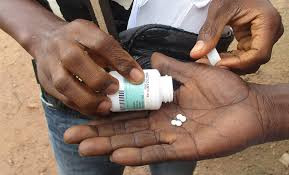
ZIMBABWE’S efforts to manage cases of bilharzia recently received a boost after the World Health Organisation (WHO) and the Expanded Special Project for the Elimination of Neglected Tropical Diseases (ESPEN) donated medicines for the disease.
The WHO Regional Office for Africa and ESPEN recently conducted a joint technical mission to Zimbabwe aimed at strengthening the national supply chain systems for Praziquantel, a critical medicine for bilharzia.
In a statement recently, WHO and ESPEN said the mission, conducted in collaboration with the pharmaceutical donor Merck and the WHO Country Office in Zimbabwe, the neglected tropical diseases (NTDs) continue affecting more than a billion people across 149 countries, with bilharzia being a major concern in sub-Saharan Africa and Zimbabwe.
“However, recent challenges such as unaccounted for stock, expiry risks and delayed treatment reporting have negatively impacted the effective use of these medicines, posing risks to both the elimination efforts and the sustainability of the WHO drug donation programme,” the statement said.
According to WHO, using interviews, field visits and document reviews, the mission examined how medicine is managed across different levels of the supply chain, from central warehouses to rural health facilities and one of the key findings was a lack of uniformity in data management.
“While central systems have been automated for better tracking and reporting, some rural facilities continue to rely on manual data entry, using handwritten records and this gap has contributed to reporting delays and reduced visibility on medicine stock levels,” it said.
WHO said Zimbabwe’s approach to NTD medicine management showed notable strengths, particularly in the strong coordination between the Health and Child Care ministry and NATPHARM, ensuring clear procedures for managing expired medicines.
- Outcry over US$ school fees
- Zim health system is in intensive care: How it got there
- Measles threat growing
- Take your child for measles vaccination
Keep Reading
The WHO officials emphasised the importance of accurate, timely data and robust accountability mechanisms to improve stock visibility and guide future drug donations.
“With Praziquantel’s relatively short shelf life, inefficiencies in stock handling can result in significant wastage and missed opportunities for treatment in affected communities,” it said.
The findings from the Zimbabwe mission will be used to develop a set of tailored recommendations to improve medicine supply chain performance and reporting systems.
“These lessons are expected to










